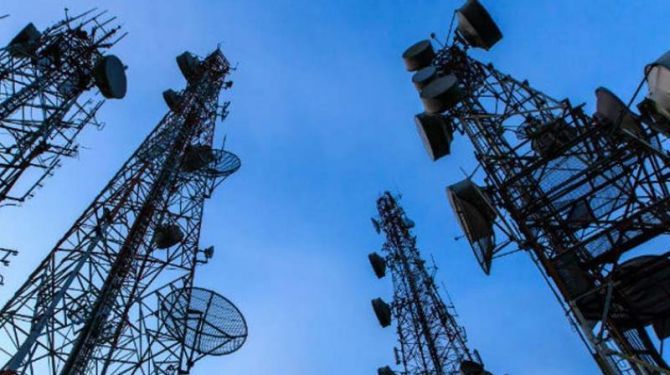It aims to attract $100 billion investment and create 4 million jobs in the sector by 2022.

The government expects to attract $100 billion in investments and generate four million jobs in the telecom sector as it on Wednesday approved a new policy for the industry.
The policy also envisages 50 Mbps of broadband connectivity to every citizen in five years.
"Cabinet has approved National Digital Communications Policy today," Telecom Minister Manoj Sinha said on Wednesday.
He said things have very rapidly evolved in the telecom sector and hence new policy has been made to address emerging technology areas like 5G, Internet of Things and machine to machine communication.
The minister said the government wants to focus on socio-economic growth of the country with the help of the telecom sector instead of seeing it as source of revenue generation.
 The NDCP proposes to adopt "Optimal Pricing of Spectrum" to ensure sustainable and affordable access to digital communications.
The NDCP proposes to adopt "Optimal Pricing of Spectrum" to ensure sustainable and affordable access to digital communications.
High spectrum price and related charges have been the main concern of the telecom services segment, which is reeling under a debt of around Rs 7.8 lakh crore.
Some of the objectives of the NDCP 2018 include providing broadband access to all, creating 40 lakh new jobs, and increasing India's ranking in the global ICT Index to 50th spot.
"We also expect GDP contribution of telecom sector, which has been around 6 per cent, to grow to 8 per cent... and expect $100 billion investment to come in," he said.
The global average of telecom sector contribution to GDP is 4.5 per cent.
The sector at present contributes around 6.5 per cent to India's GDP.
The government expects to decide on most of the promises made under NDCP 2018 in a year, Sinha said.
"We will decide on most of the things in a year," Sinha said in response to a query on by when the government will be ready with a roadmap.
The last national telecom policy was issued in 2012.
"We have also changed the name of Telecom Commission to Digital Communication Commission. We will work inclusion of other ministry representatives into it," Sinha said.
The minister said the policy has been formulated after it was felt that a "consumer-centric and application-driven policy" be brought in.
The vision, Sinha said, is to have robust communication infrastructure and broadband for all.
The policy promises to promote domestic telecom products and equipment manufacturing with preference to indigenous manufacturers and encourage participation of technology start-ups in the sector.
Industry body COAI said the implementation of NDCP 2018 will have a positive, long-term impact on the sector.
It also hoped that the DoT will closely monitor the timely implementation of this policy so that the industry can recuperate from the deepening financial stress.
"Thus, the most important and urgent requirement is to restore the financial health of the sector for which the Policy document envisages the reduction in levies and ease of doing business," COAI director general Rajan S Mathews said.
This will help the industry in achieving the goals of and fulfilling the objectives outlined in the policy, he said.
Photograph: PTI Photo











 © 2025
© 2025